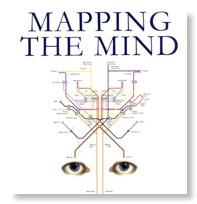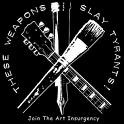Who Will Defend Us Against Ourselves?

Mapping Human Relationships
 Thanks, again, to each of you who commented on my Relational Work Manifesto. Since posting that, I have been thinking about how one creates maps of these relationships. Of course, trapped in the mechanical mindset, I started looking for physical amendments to the tired, potentially trueish PERT or GANTT representations before recalling that this different order of 'relating' might well demand a different typology for the mapping, too.
Thanks, again, to each of you who commented on my Relational Work Manifesto. Since posting that, I have been thinking about how one creates maps of these relationships. Of course, trapped in the mechanical mindset, I started looking for physical amendments to the tired, potentially trueish PERT or GANTT representations before recalling that this different order of 'relating' might well demand a different typology for the mapping, too.The challenge might be not to create coherent tacit maps, but to accept that they are creatable. We can and do create these, though not always deliberately and mindfully. Years ago, in a book entitled The Politics of Projects, an explicit mapping was proposed, rather like data mapping. I thought then that the relationship, political side of projects was mutli-faceted, encompassing too many dimensions to display in two or three dimensional space. But our minds are not bound to these few dimensions. How to employ this facility?
In our Mastering Projects Workshop, we've employed several different techniques for side-stepping the usual urge to jump right into task definition and requirements discovery, under the belief that projects are usually better served by understanding their present context first, before they start describing their future or the path there in any detail.
Organizational Insurgency

More often, a better idea confronts an entrenched one. Asking for permission to change typically results in permission being denied. What's a good soldier to do?
I've started gathering stories of Organizational Insurgents and their Insurgencies. Before you start calling me a terrorist or a supporter of terrorists, I'll point you to the dictionary, where insurgency is defined as:
“Insurgency: the quality or state of being insurgent; specifically: a condition of revolt against a government that is less than an organized revolution and that is not recognized as belligerency. Latin insurgent- to rise up, from in- + surgere to rise.” (from Merriam-Webster’s Online Dictionary)Following is a first story. I'm gathering more. If you have one you'd like to share, please contact me. I think there's a pattern of successful insurgencies. Could be useful to tease it out. Slip over here for more ...Deming Died Disappointed

I'm with you. This idea upsets me greatly and doesn't, on the face of it, seem to describe how we produce output in companies today. Joel, you note that much of this already happens, and I agree with you. And if we closely investigated how Hoover Dam actually WAS built, we might be surprised at how much of what I tried to describe happened even there.
My invitation: Observe what you do for a week. Watch how much of what you do depends upon unplanned and unplannable exchanges.
Here's a little poem to guide the inquiry.
Slip over here for more ...Relational Work - A Manifesto

We live in a time immersed in a culture focused upon processes. I believe this is a fundamental misinterpretation, one which causes many of its own shortcomings.
I warmly appreciate Gregory Howell and his colleagues for pointing out an obvious truth: the metaphor we unselfconsciously use to guide our work is faulty. We see work as a series of disembodied input-process-output processes, though much of the work we engage in these days cannot be effectively characterized in this way. How we think about work influences everything.
How would it be if we characterized work as primarily relational rather than primarily transformational. In this frame, work is the product of interacting relationships, not compliance with disembodied processes. Each is free, within ethical boundaries, to engage in offer-bid-accept trades intended to achieve results. How they engage, when they engage, and to a very large part how they produce results is in the individual trader’s hands, understanding that the future viability of the community depends upon sustaining relationships, not simply fulfilling a current need.
I invite you to join this consideration. I need your help, whether that comes as biting criticsm or encouragement. Consider how this frame of reference might change the work you do and we’ll talk.
Slip over here for more ...
Ain't No Fleas On Me!

Replies: Monoculture, Corporate Culture, and Cultural Change

When efficiency become the purpose, purpose is gone
When low cost becomes the purpose, purpose is lost.
When conformity, consistency, and sameness become the first measure of goodness,
All goodness is gone.
Mistake the measure for the purpose, the process for the result, the glossy cover for the book,
and you’ll never find meaning in literature again.
Purpose lives beyond tomorrow, over the foreseeable horizon, in a dreamland banned from the bottom line.
Without it, every bottom line is meaningless.
With it, the bottom line today rarely matters.


